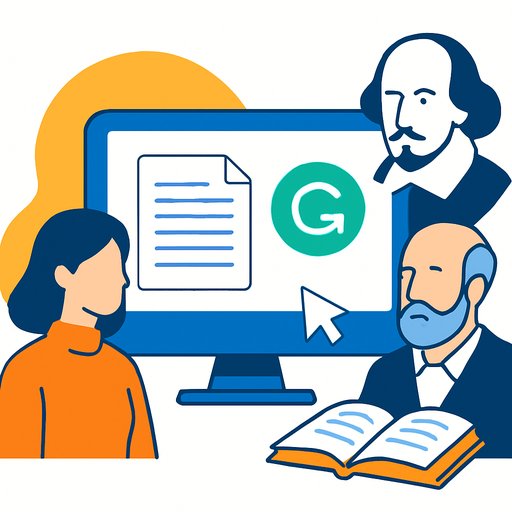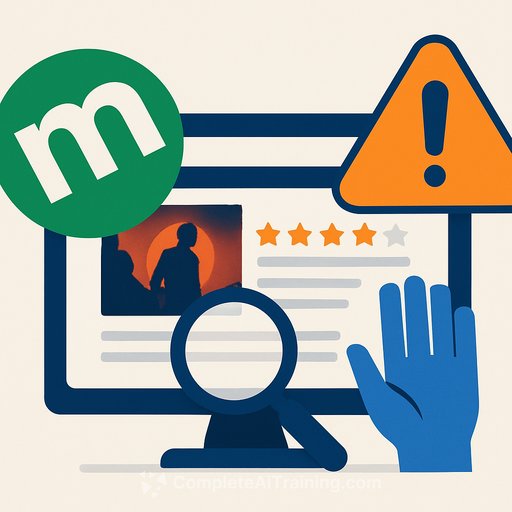'Pluribus' isn't anti-AI. It's pro-questions - and that's a smarter move for writers
Apple TV's Pluribus landed on November 7 with Rhea Seehorn playing Carol Sturka, a historical romance author who seems to be the only person immune to a strange virus that turned everyone else into optimists. The show's latest flashpoint: a scene in "Grenade" where Zosia (Karolina Wydra) casually recites trivia scraped from a vodka distiller's mind. Sturka shuts it down: "You stole it out of his brain."
That line sparked a wave of "is this anti-AI?" takes. Writer-director Gordan Smith responded that the show will probably get those labels, but reducing it to a one-to-one metaphor flattens the story. His point: there are resonances with AI, sure, but the series is built to make you sit with ideas, not file them into a neat box.
What writers can take from this
Hot topics tempt us to preach. Pluribus chooses friction over sermons. It uses a charged idea - borrowed knowledge vs. lived craft - then lets characters clash on values, not just facts.
- Theme without lecturing: Put your stance inside character choices and consequences. Let readers connect the dots.
- Make "the system" personal: Zosia's instant expertise feels off because it bypasses experience and ownership. That's a clean way to dramatize ethics.
- Stay multidimensional: Smith's refusal to draw a straight line to AI keeps the story generous. Complexity travels further than certainty.
- Concrete scenes beat essays: One barbed exchange about vodka says more about authorship and theft than a monologue ever could.
The show's premise keeps the pressure on
Sturka's immunity creates a natural outsider POV. Surrounded by enforced optimism, her resistance isn't just plot - it's a theme engine. Every conversation becomes a test: free will vs. conformity, originality vs. consensus, memory vs. appropriation.
For your own work, ask: What simple rule (a virus, a law, a tech limitation) forces my characters into uncomfortable tradeoffs? That constraint will do more for your theme than any speech.
On the AI debate: useful framing for creatives
Pluribus isn't waving a warning sign so much as holding a mirror. If a character can "know everything" without doing the work, what exactly is lost - accuracy, authorship, or meaning? That's a clean lens for writing about AI without getting stuck in buzzwords.
- Define the cost: Speed and scale are easy. What's the human tax your characters pay when they outsource?
- Separate data from wisdom: Facts stack fast; taste and judgment still come slow. Build conflict there.
Quick production notes fans (and writers) will care about
Apple TV has already ordered a second season, with episodes rolling out weekly until the December 26 finale. Vince Gilligan has confirmed Pluribus isn't connected to Breaking Bad or Better Call Saul, despite sharing Albuquerque and Rhea Seehorn.
If you're a writer experimenting with AI
Use tools to iterate faster, not to skip the craft. If you're exploring practical options for drafting, editing, or idea generation, you can scan curated picks here: AI tools for copywriting. The goal is simple: keep your voice, outsource the grunt work, and protect your standards.
Bottom line: Treat themes like Pluribus treats AI - as a question worth wrestling with, not a slogan. Let your characters argue, let scenes carry the weight, and let readers meet you halfway.
Your membership also unlocks:





